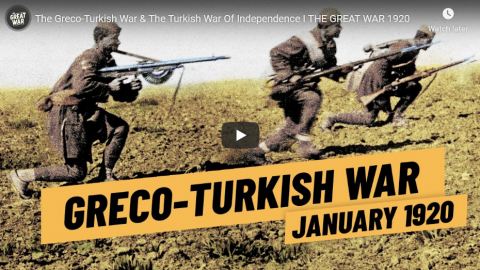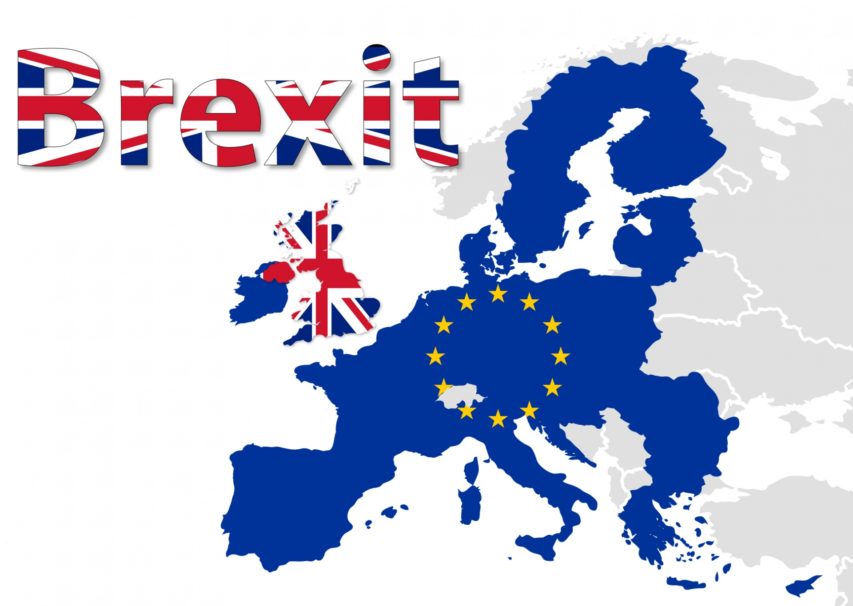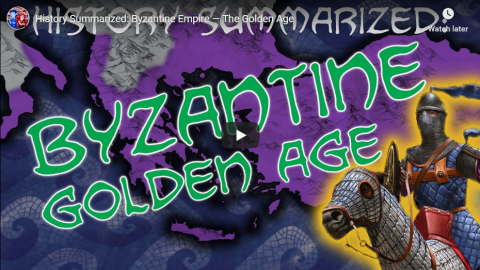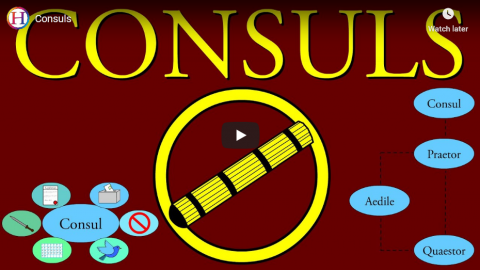The Great War
Published 31 Jan 2020Sign up for Curiosity Stream and Nebula: https://curiositystream.com/thegreatwar
The Ottoman Empire was among the losing powers of World War 1 and left a power vacuum after the armistice of Mudros. The Great Powers had already made plans for the territory beforehand and now Greece had ambitions to take over the parts of Turkey where Greeks lived.
» SUPPORT THE CHANNEL
Patreon: https://www.patreon.com/thegreatwar
Merchandise: https://shop.spreadshirt.de/thegreatwar/» SOURCES
Criss, Nur Bilge: “Occupation during and after the War (Ottoman Empire)”, in: 1914-1918-online. International Encyclopedia of the First World War, ed. by Ute Daniel, Peter Gatrell, Oliver Janz, Heather Jones, Jennifer Keene, Alan Kramer, and Bill Nasson, issued by Freie Universität Berlin, Berlin 2015-08-05 https://encyclopedia.1914-1918-online…Leonhard, Jörn. Der überforderte Frieden. Versailles und die Welt 1918-1923 (CH Beck, 2018).
Macmillan, Margaret. The Peacemakers: Six Months that Changed the World (London: John Murray, 2001).
Karsh, Efraim and Inari Karsh. Empires of the Sand (London: Harvard UP, 1999).
Llewllyn Smith, Michael. Ionian Vision: Greece in Asia Minor (London: Hurst, 2016 (1973))
Gerwarth, Robert. The Vanquished. Why the First World War Failed to End, 1917-1923 (Penguin, 2017).
Fromkin, David. A Peace to End All Peace (New York: Avon, 1989)
McMeekin, Sean. The Ottoman Endgame (Penguin, 2015)
» SOCIAL MEDIA
Instagram: https://instagram.com/the_great_war
Twitter: https://twitter.com/WW1_Series
Reddit: https://reddit.com/r/TheGreatWarChannel»CREDITS
Presented by: Jesse Alexander
Written by: Jesse Alexander
Director: Toni Steller & Florian Wittig
Director of Photography: Toni Steller
Sound: Toni Steller Editing: Toni Steller
Mixing, Mastering & Sound Design: http://above-zero.com
Maps: Daniel Kogosov (https://www.patreon.com/Zalezsky)
Research by: Jesse Alexander
Fact checking: Florian Wittig ChannelDesign: Alexander Clark
Original Logo: David van Stephold
A Mediakraft Networks Original Channel
Contains licensed material by getty images
All rights reserved – Real Time History GmbH 2019
February 1, 2020
The Greco-Turkish War & The Turkish War Of Independence I THE GREAT WAR 1920
Brexit Day
Late Friday night, the United Kingdom left the European Union. Within minutes, the power failed all across the nation, people began to starve due to the lack of food, and the shattered remnants of civilization were hurled on the rubbish heap. London is now nothing but a smoking hole in the ground along the banks of the Thames occupied by filthy machete-wielding twitchy-eyed savages. Now that nobody in the UK can read or write, nobody knows how the machines used to work, and all the disgusting medieval diseases are back in full strength, the sun will literally never rise again over those once green and pleasant lands.
Yet, despite the ongoing disasters, a few brave souls still cling to their dim and pathetic hopes of a better world outside the European Union. Here, for example, someone claiming to be Brendan O’Neill smuggled out a story on the last helicopter to take off from the roof of the embassy building (at least, that’s how I assume it got posted to the web…):
Remainers, for their part, are furious about all the talk of parties. We’re rubbing their noses in it, they say. Everything from the Brexit Day gathering in Parliament Square this evening to Sajid Javid’s issuing of a commemorative 50p coin is being cited by the establishment’s bruised, Remoaning anti-democrats as proof of the vile populist streak in the Brexit movement. London mayor Sadiq Khan is even fretting that tonight’s Brexit bashes could give rise to xenophobic hate crimes.
Of course he is. That’s how they see us: as a pogrom-in-waiting. As a racist blob. As an unthinking mass driven almost entirely by hatred of the Other. They’ve been hurling these insults at us, at the millions of men and women who voted for Brexit, for three-and-a-half years now.
But all sides in the Brexit Day discussion are wrong. Baker and other timid Brexiteers are wrong to suggest we should play down the significance of this day lest we offend Remainers, and the Brexitphobic wing of the elite is wrong to say these celebrations are a screech of populist arrogance against the defeated side in the referendum. No, the reason this day must be marked — loudly, firmly and colourfully — is because it represents a glorious victory for democracy. What is being celebrated today is the defence of democracy against one of the greatest threats it has faced in modern times.
One of the peculiarities of the Brexit era, and of the contemporary era more broadly, is that very small and very unrepresentative sections of society are in control of the political and moral narrative. So even as 17.4million people, the largest electoral bloc in our history, voted for Brexit, and stood by their vote for Brexit in the face of the most extraordinary campaign of demonisation that I can remember, still the Remainer elites got to write the story of Brexit.
The powers-that-be — from the business elites to more than 70 per cent of MPs to virtually the entire academy and cultural sphere — were pro-Remain. And they used their influence in the worlds of commentary, letters and culture to paint a picture of Brexit as disastrous. As toxic. As fascistic. Or, at best, as very, very difficult to enact. The disjoint between public enthusiasm for Brexit and elite disgust with it was, at times, staggering.
As a consequence, it became incredibly difficult to draw out the historic significance, the magnificence, of Brexit. Even those in public life who supported Brexit, no doubt feeling the pressure of the often deranged establishment narrative around Brexit, became defensive. Brexit was manageable, they insisted. It would be okay. “Get Brexit Done”, as the Boris Johnson campaign said in December — a tellingly apologetic slogan which, thankfully, was enough to win the support of vast numbers of Leave voters, but which implicitly played into the denigration of Brexit, the reduction of it to a difficult, pesky task. Hardly anywhere was there an assertion of the historic, epoch-defining nature of Brexit.
History Summarized: Byzantine Empire — The Golden Age
Overly Sarcastic Productions
Published 31 Jan 2020What do you do when life takes away half of your empire? Well, if you’re the Medieval Byzantines, you make comprehensive structural reforms to better manage a changing geopolitical landscape — And then you make an absolute crapload of mosaics.
Our content is intended for teenage audiences and up.
This video was edited in part by Sophia Ricciardi, AKA “Indigo”.
FURTHER SOURCES: A Short History of Byzantium by John Julius Norwich.
PATREON: https://www.Patreon.com/OSP
DISCORD: https://discord.gg/h3AqJPe
MERCH LINKS: https://www.redbubble.com/people/OSPY…
OUR WEBSITE: https://www.OverlySarcasticProductions.com
Find us on Twitter https://www.Twitter.com/OSPYouTube
Find us on Reddit https://www.Reddit.com/r/OSP/
Trudeau government’s unwillingness to define what they mean by “middle class”
The phrase has taken on almost an Alice in Wonderland quality for Justin Trudeau and his recently created “Minister of Middle Class Prosperity”:
“When I use a word,” Humpty Dumpty said in rather a scornful tone, “it means just what I choose it to mean — neither more nor less.”
“The question is,” said Alice, “whether you can make words mean so many different things.”
“The question is,” said Humpty Dumpty, “which is to be master — that’s all.”
It could be addressed, says Chris Selley … and really should be:
In the meantime, the Liberals have another problem. It is far less important than Iran or China, but it’s also far more embarrassing than either, because it is entirely of their own making and so easily fixed. It is as follows: Trudeau has given Ottawa MP Mona Fortier the new cabinet title of “Minister of Middle Class Prosperity,” but no one in the government has yet bothered to define “middle class.” And everyone is laughing at them.
Mona Fortier, Minister of Middle Class Prosperity and Associate Minister of Finance.
© HOC-CDC. Photo by Christian Diotte, House of Commons Photo Services, November 2019.Fortier has tried to explain herself. “We have to make sure we represent the realities in a rural, remote or even urban setting, (and) regional differences,” she told CTV upon her appointment. “The income required to attain a middle-class lifestyle can vary greatly based on Canadians’ specific situation,” she told the same network this week.
She’s right! Pack up your middle-class lifestyle in Small Town A, and you might well not recognize it when you unpack in Big City B. The thing is, though, statisticians — including scores of them in the federal government’s employ — are across this. They know very well that a Canadian dollar does not purchase the same quantity of goods and services in every part of the country, and they have all sorts of ingenious ways to compensate.
If it were true that “middle class” can’t be defined because it connotes different things in different places, then the same would go for “poverty.” But Canada has never had any problem defining poverty on a relative basis. And in 2018, this very Liberal government adopted an absolute measure of poverty as well: the Market Basket Measure, which estimates the cost of “a modest standard of living” in any given place, and calculates how many of us can’t afford it.
So the “poverty line” in Small Town A is not the same as it is in Big City B, and … sorry, this very simple concept doesn’t need to be explained to National Post readers any further. The point is, defining poverty was a good thing. Defining the middle class obviously doesn’t matter as much, but since this government seems utterly obsessed with it — and with evidence-based policy! — there is no good reason for it not to do likewise.
Cursus honorum – Consuls
Historia Civilis
Published 18 May 2015Patreon: https://www.patreon.com/HistoriaCivilis
Website: https://www.historiacivilis.com
Twitter: https://twitter.com/HistoriaCivilisMusic is “The Life and Death of a Certain K. Zabriskie, Patriarch” by Chris Zabriskie. (http://chriszabriskie.com/)
QotD: Justifying tyranny
In [Adam] Smith’s time, and now again in the regulatory state, few believed that a masterless society would be possible. The haunting fear by governing elites supported by worried citizens stirred up by an antitrade clerisy was then, and still is, that ordinary people will do bad things if left alone. Unless overawed by the threat of state violence in police or planning or regulation, ordinary people, especially the lower classes, will spurn priests, stop paying their rents and taxes, not save enough for old age, kill each other, not buy enough insurance, speak against the government, appear with hair uncovered, refuse military service, drink to excess, commit unnatural acts, use naughty words, chew gum, smoke marihuana – committing in sum, as Bill Murray put it in Ghostbusters, “human sacrifice, dogs and cats living together, mass hysteria.” A progressive or a conservative program of heavy regulation is a first-night-in-Ferguson-Missouri notion of keeping order. It is the justification of all tyranny, hard or soft.
Deirdre McCloskey, Bourgeois Equality, 2016.








